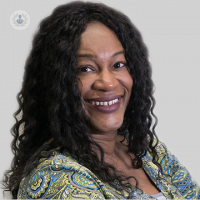What is thrush?
Autore:Thrush is the most common name given to a medical condition in which a yeast-like fungus called Candida albicans overgrows in the genital area or the mouth and throat. It can affect both men and women and although usually harmless, it can be quite uncomfortable and may keep coming back. Dr Nneka Nwokolo tells us more about the parts of the body that are affected by thrush, the symptoms that accompany it and how it can be treated.

As we’ve mentioned, thrush affects the genitals (vagina and penis) but can also affect the mouth. The Candida yeast lives naturally in the digestive system of everyone and because the exit point of the digestive system (anus) is so close to the genital area, it’s very common for this fungus to be found there.
Thrush in the genital area is generally more common in women than men, mainly because of the closeness of the vagina to the anus. It’s also more common in uncircumcised men than circumcised men. Anyone with a suppressed immune system is also more prone to developing this yeast infection.
Can thrush also affect babies?
Thrush can affect anyone, and it’s pretty common in babies, where it usually affects the mouth. It also commonly affects the mouth in people with asthma who use steroid inhalers and the mouth or genital area in people on steroid treatments.
Is thrush contagious?
Thrush isn’t considered to be a sexually transmitted infection, but sometimes male sexual partners of women with thrush can develop symptoms, usually because of an allergic reaction to substances on the surface of the yeast. Thrush isn’t contagious otherwise and can’t spread by normal contact, for example; through using utensils or sharing a bath.
Symptoms of thrush in men vs. symptoms of thrush in women
In women thrush in the genitalia usually causes itching inside the vagina and on the skin outside. The itching can sometimes be very severe and is usually accompanied by a thick white discharge that often looks like cottage cheese which typically has no smell.
Symptoms in men include itching and redness of the head of the penis, often with a white discharge under the foreskin.
How is thrush treated?
Thrush can be easily treated with anti-fungal treatments that can be bought over-the-counter without the need for a prescription. They usually come in either cream or tablet form or a combination of both.
If symptoms don’t subside after a course of treatment, it’s important to see a doctor or nurse, as there are other conditions that may mimic thrush.
If you are affected by thrush and you would like more information, visit the profile of Dr Nneka Nwokolo.



